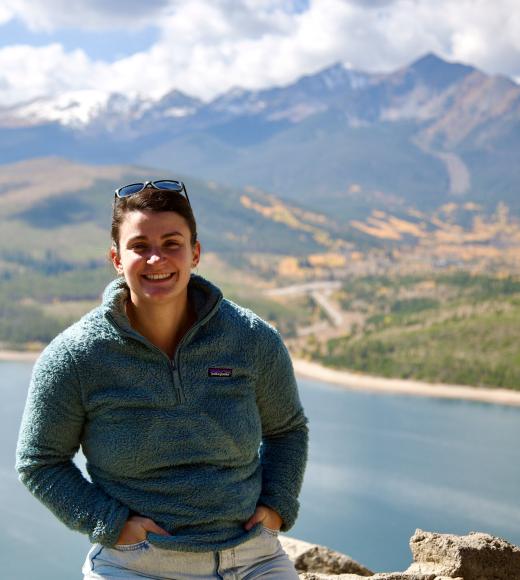
Position Title
MS Student
- International Agricultural Development
PROJECT
My project focuses on the tradeoffs between soil organic carbon and nitrous oxide emissions from agricultural soils. Specifically, we are testing the hypothesis that increasing soil carbon may also increase nitrous oxide emissions using intact soil cores from a long-term field experiment in Five Points, CA led by Dr. Jeff Mitchell. The combined practice of no-till and cover crops has greatly increased carbon compared to conventional tillage. In the greenhouse at UC Davis we are growing wheat under N rates of 0, 100, and 200 kg/ha to measure N2O emissions from soil using the static chamber method. We will also quantify wheat yield and nitrogen use efficiency in relation to overall N2O fluxes. Data collected from this study will help us understand how management strategies for building soil carbon may influence net GHG emissions, informing future projects and the development of soil health practices not just in California, but in farming communities around the world aiming to boost soil fertility and food security while mitigating the negative effects of nitrogen losses.
BACKGROUND
I grew up in Vermont before heading to Pennsylvania to attend Allegheny College with the intention of studying topics related to renewable energy. After my freshman year, I took a year off to study abroad in Southeast Asia where I learned about environmental, social, political, and religious facing communities in the Mekong River Basin. After returning to school, I changed my major to Environmental Studies with a focus in Sustainable Agriculture and International Development. I eventually moved back to Vermont where I worked for the Vermont Farm and Forest Viability Program on food security and agricultural development grant projects. After a couple year stint living in Denver, I moved to Davis for grad school.
RESEARCH INTERESTS
My research has previously been more focused on the social sciences and how factors like gender, age, religion, and region affect how farmers make decisions around mitigating and adapting to climate change. This, in conjunction with my current research project, exemplifies my belief that farming is as much about the farmers themselves, as it is the land they are managing. More specifically, I am passionate about understanding the various aspects of soil health and the multiple roles it plays in our food systems.